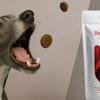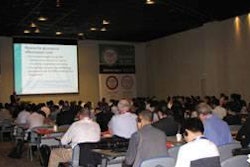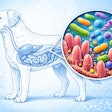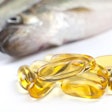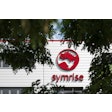The objective of this study was to assess effects of foods fortified with docosahexaenoic acid (DHA)–rich fish oil on cognitive, memory, psychomotor, immunologic and retinal function and other measures of development in healthy puppies. After weaning, 48 Beagle puppies were assigned to three groups, receiving low-DHA, moderate-DHA or high-DHA food as their sole source of nutrition until 1 year of age. Visual discrimination learning and memory tasks, psychomotor performance tasks, physiologic tests and anti-rabies virus antibody titers were performed at various points.
Foods had similar proximate analysis results but varied in concentration of DHA from fish oil; the high-DHA food also contained higher concentrations of vitamin E, taurine, choline and L-carnitine. The high-DHA group had significantly better results for reversal task learning, visual contrast discrimination and early psychomotor performance in side-to-side navigation through an obstacle-containing maze than did the moderate-DHA and low-DHA groups. The high-DHA group had significantly higher anti-rabies antibody titers one and two weeks after vaccination.
Following weaning, dietary fortification with fish oils rich in DHA and possibly other nutrients implicated in neurocognitive development improves cognitive, memory, psychomotor, immunologic and retinal functions in growing dogs.
Source : S.C. Zicker et al., 2012. Evaluation of cognitive learning, memory, psychomotor, immunologic, and retinal functions in healthy puppies fed foods fortified with docosahexaenoic acid–rich fish oil from 8 to 52 weeks of age. JAVMA 241: 583-594. doi: 10.2460/javma.241.5.583

